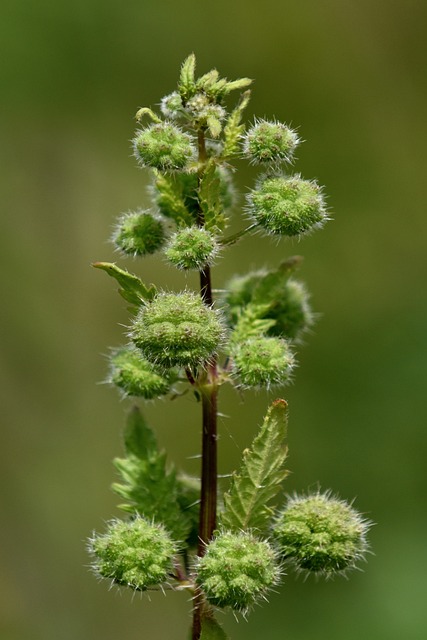The THCA flower, rich in the non-psychoactive cannabinoid THCA and a host of antioxidants including CBD, has garnered scientific attention for its potent antioxidant properties. These properties are key to neutralizing harmful free radicals that can cause cellular damage, potentially preventing a range of diseases linked to oxidative stress. The flower’s antioxidants work by scavenging free radicals and modulating redox-active transcription factors, offering protection against oxidative stress. Research is focusing on the therapeutic potential of the THCA flower in treating conditions such as neurodegenerative diseases and inflammatory disorders, leveraging its antioxidant capabilities akin to vitamin C and E. The THCA flower’s interaction with the endocannabinoid system and its role in inhibiting enzymes that generate reactive oxygen species further underscore its significant health benefits, making it a subject of growing interest for potential treatments and preventive strategies against oxidative stress-related conditions.
Exploring the therapeutic potential of the THCA flower, this article delves into the antioxidant properties that make it a subject of growing interest in the realm of natural health. Uncover the science behind its benefits and how these mechanisms could lead to innovative applications. The THCA flower’s antioxidant capacity is not just a point of scientific intrigue but holds the promise for health-enhancing solutions, offering a glimpse into its broader impact on wellness. Join us as we examine the compelling evidence supporting the buy thc a flower antioxidant properties and their implications for human health.
- Unveiling the Antioxidant Potential of THCA Flower: A Deep Dive into Cannabinoid Benefits
- The Science Behind THCA Flower’s Antioxidant Properties: Mechanisms, Effects, and Applications
Unveiling the Antioxidant Potential of THCA Flower: A Deep Dive into Cannabinoid Benefits

THCA, or tetrahydrocannabinolic acid, is a non-psychoactive precursor to THC (tetrahydrocannabinol), the well-known psychoactive compound found in cannabis. The THCA flower, rich in this cannabinoid, has garnered attention for its potential health benefits, particularly its antioxidant properties. Antioxidants are critical for human health as they help combat oxidative stress by neutralizing harmful free radicals that can lead to cellular damage and contribute to various diseases.
Research into the THCA flower has revealed that it contains a robust profile of antioxidants. These compounds, including cannabidiol (CBD) and other beneficial phytochemicals, work synergistically to protect cells from oxidative damage. Studies have indicated that THCA itself possesses potent antioxidant properties, as evidenced by its ability to scavenge free radicals and modulate redox-sensitive transcription factors. This antioxidant capacity is not only significant in terms of its direct impact on cellular health but also for the broader implications it may have in promoting overall wellness and potentially preventing or mitigating certain conditions associated with oxidative stress, such as neurodegenerative diseases and inflammatory disorders. The therapeutic potential of THCA flower is an area of growing interest, with ongoing research aimed at unraveling the full scope of its benefits for human health.
The Science Behind THCA Flower’s Antioxidant Properties: Mechanisms, Effects, and Applications

THCA flower, rich in tetrahydrocannabinolic acid (THCA), possesses a unique profile of antioxidant properties that have garnered scientific interest. These properties stem from the presence of cannabinoids like THCA and a wide array of other phytochemicals found within the flower. Studies have highlighted the potential of these compounds to neutralize free radicals, which are unstable molecules that can cause oxidative stress and contribute to various diseases. The antioxidant capacity of THCA flower is comparable to other well-known antioxidants like vitamin C and E, with research suggesting that it may effectively protect cells against damage from reactive oxygen species (ROS).
The mechanisms behind the antioxidant effects of THCA flower are multifaceted. Cannabinoids such as THCA can interact with the body’s endocannabinoid system, influencing the regulation of oxidative stress through various signaling pathways. Additionally, THCA has been observed to inhibit certain enzymes that contribute to the production of ROS, thus indirectly reducing oxidative stress. The therapeutic implications of these findings are vast, with potential applications ranging from skincare and anti-aging to more serious conditions like neurodegenerative diseases and inflammatory disorders. The antioxidant properties of THCA flower offer a promising avenue for research into new treatments and preventive measures for oxidative stress-related health issues.
THCA flower’s antioxidant properties have been thoroughly examined in this article, revealing a promising potential within the realm of health and wellness. The scientific exploration into its mechanisms and effects underscores the importance of this natural compound as a beneficial element for various applications. As research continues to unfold the therapeutic benefits of THCA flower, it is clear that its antioxidant properties could play a significant role in enhancing overall health. This cannabinoid-rich flower holds great promise for those seeking natural ways to combat oxidative stress and maintain well-being.
